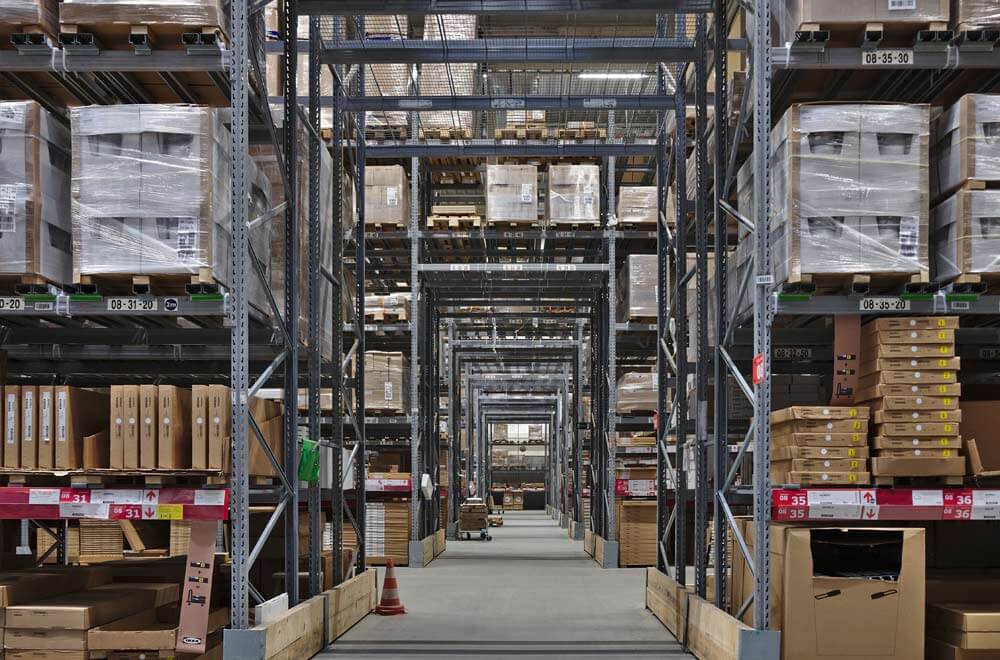The Health & Safety Executive (HSE) and Warehouse Accident Injuries
Interestingly the HSE website says this about accidents that happen in warehouses;
“Work related accidents within the storage and warehousing industry remain a major issue with many thousands of RIDDOR reportable incidents being recorded each year. (RIDDOR stands for the Reporting of Injuries, Disease and Dangerous Occurrences Regulations 2013.)
The HSE, in 2011, reported that in the year 2009/2010, there were over 8500 work related accidents reported to the HSE and local authorities by the storage, warehousing and road haulage industries. Of these, almost 1600 were classified as major injuries, such as amputations and fractures.
What is Meant by a ‘Warehouse Accident’?
Warehouse accident compensation claims are made by those workers operating inside or outside a warehouse who suffer personal injury in one of the following ways (although this list is by no means exhaustive);
- Slip, trip and fall accident
- Manual Handling accidents – lifting an object that is too heavy or through repetitive lifting – combined with poor training and/or inadequate lifting equipment.
- Falls from Height
- Hit by falling object
- Forklift truck accident (or being struck by another type of moving vehicle)
- Exposure to harmful or toxic substances
- Frequent exposure to loud noises resulting in industrial deafness
Statistics reveal that in 2018, slip, trip and fall accidents were the most common cause of non-fatal injuries in the warehousing industry. Manual handling accidents came next.
During the same period, the main cause of fatal accidents was being struck by a moving vehicle.
In other words, the term ‘warehouse accidents’ is a generic one for all types of accident, with the common denominator being that these accidents happen to workers in warehouses.
It is no real surprise that there are so many accidents in warehouses. Heavy items are constantly moved around the warehouse; forklift trucks and other moving vehicles operate throughout working hours, both inside and outside, around the loading bays of warehouse depots. Items are stored at height, often at great height and are invariably not accessible without the use of ladders or ‘cherry pickers.’ The possibility of liquids being spilled on the floor is an ever-present slipping peril as is the chance of someone being injured in a manual lifting accident – in fact the list of potential accident hazards seems endless.
What Type of Injuries can be Caused by Warehouse Accidents?

In 2018, the types of warehouse accident in which most non-fatal injury occurred, were slip, trip and fall accidents. Manual lifting accidents were the second most common type.
When it came to fatal accidents, the main cause of accidents causing the death of employees was that of being struck by a moving vehicle.
The specific types of injuries sustained by warehouse employees in accidents at work occurring in a warehouse environment, include;
- Cuts, bruises and laceration injuries
- Sprains and torn ligaments
- Repetitive Strain Injuries (RSI)
- Concussion
- Burns
- Loss of hearing
- Broken and fractured limbs
- Serious head injury
- Brain damage
- Amputation
- Crushing injury
- Death (Fatal accident)
Warehouse accidents often result in the serious injuries. Working in a warehouse is physically demanding. Much of the work involves using heavy equipment.
There may be a constant presence of heavy moving vehicles both inside the warehouse and outside of it. All of these factors combine to make warehouses inherently unsafe places of work.
Aren’t Employers Required to Take Steps to Protect their Employee’s Safety at Work?
Indeed, they are. Thankfully there are strict regulations in place, regarding the safety of employees in the workplace and specifically in relation to the type of activities that take place in a warehouse setting.
The Management of Health and Safety at Work Regulations 1999 and The Manual Handling Operations Regulations 1992 (amended in 2002 are two pieces of government legislation (rules) that require employers in the warehousing industry to put appropriate health and safety arrangements in place to try and ensure the safety of their workers. Amongst other requirements imposed on employers, these acts of parliament require them to;
- Assess the safety risks to employees and others;
- Eliminate those identified risks where possible.
- In situations where risks can’t be eliminated, reduced them to an acceptable level;
- Providing employees with safe systems of work;
- Communicate and deliver adequate information and training to the workforce
- Get the workforce and the health and safety representatives involved in decision making on health and safety issues, where possible;
- Avoid the need for hazardous manual handling, so far as is reasonably practicable;
- Assess the risk of injury from any hazardous manual handling that can’t be avoided;
- Reduce the risk of injury from hazardous manual handling, so far as is reasonably practicable.
- Regularly review performance.
It should be remembered that employees have a duty to take care too, by making sure that they;
- Follow the systems of work that are in place for their safety;
- Use the equipment provided for their safety properly;
- Co-operate with their employer on health and safety matters;
- If they identify hazardous handling activities, make sure their employers know about it;
- Do not put others at risk, by their own activities.
Employers and their site managers owe a duty of care to ensure that their workers are able to go about their daily duties, in a safe environment. Adopting the health and safety measures like the ones listed above, demonstrates that the management are taking steps to reduce or eliminate the risk of warehouse accidents.
Unfortunately, not all employers diligently adopt, apply or enforce the rules and guidelines that they are supposed to. If an accident happens and it is found that the employers are in breach of their duty of care to the injured employee, then a warehouse accident compensation claim may be made by the worker who was injured, against their employer.
What Should I do if I Suffer Injury in a Warehouse Accident?
- Get treated straightaway either by visiting a hospital or a doctor
- Ensure that the accident is reported onsite as soon as possible and that full details are or have been entered the accident book
- Get details of any witnesses to the accident
- In cases of serious injury, you are likely to be taken to hospital by the emergency services. Obtaining witness details or reporting the accident yourself will obviously be of secondary importance at this stage to ensuring that you get the right treatment for your injuries.
Contact Mooneerams personal injury solicitors and talk to one of our accident at work claims solicitors. Mooneerams have successfully recovered the maximum possible compensation on behalf of clients who have been injured at work. The warehouse accident compensation that we have recovered for them has included damages (compensation) for;
- The pain and suffering caused by the personal injury
- Loss of earnings
- Loss of future earnings
- Costs of physiotherapy and other remedial treatment
- Reimbursement of the cost of medical and prescription fees.
Call us, even if you are unsure whether you have a valid claim for compensation or not and we will be pleased to discuss the circumstances of the accident with you. We will then advise you whether we think that on the balance of probabilities, you have reasonable prospects of making a successful injury claim. There will be NO CHARGE for this initial advice and there will be absolutely no obligation on you thereafter to pursue the matter further.
At Mooneerams, we only act on behalf of injured claimants. That means we never work for insurance companies to defend claims.
Call Mooneerams now on 029 2048 3615 if you have been injured as a result of a forklift truck accident at work, within the last 3 years. Alternatively fill in our quick claim enquiry form and we’ll get straight back to you. In most cases, we will be able to assist you by means of a No Win, No Fee arrangement.























